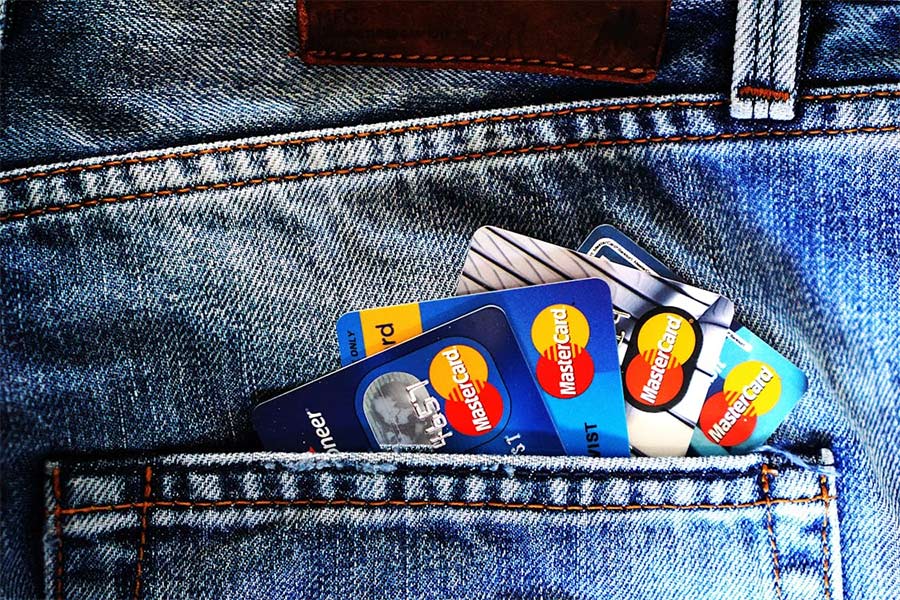Most people talk about credit like it’s a mysterious number that’s just floating out there somewhere and is pretty confusing. You might check it once in a while, and you’ll either be pleased with what you see or unhappy about it, and then you’ll just carry on with what you’re doing because you’re not sure what you’re meant to do about it.
What you’re really meant to do is take control of your credit, and there are a few different ways to do it, so with that in mind, keep reading to find out more.

You Start Seeing Credit As Long-Term, Not A One-Off
A lot of people only actually think about their credit when they need it, like when they’re renting somewhere to live, applying for a loan, or checking bills, and so on. But credit is actually working for you in the background all the time, and it’s updated regularly, meaning it changes with your habits, good or bad.
Taking control means thinking of it as something to keep an eye on regularly, rather than just when you think you need it. The fact is, looking at it often, understanding what affects it, and spotting any patterns that might be there (like if your balances always creep up at certain times of the year or you’re always late with the same bill, and so on) means you’ll have a bit more power over it all.
You Stop Guessing And Start Understanding The Details
Most worries about credit really come from not knowing why something’s changed, but it could be something like a missed payment you didn’t know about, or maybe you’re using more credit than normal, and so on. The point is, these are the details that really matter, and when you check your report regularly, you’ll understand those details a lot more – like the way you’d read a bank statement and notice anything strange.
And when something doesn’t look right, you can deal with it calmly and quickly because you’ve seen it before it becomes an absolute nightmare, whether that means contacting a lender, getting your paperwork together, or working out how to win a TransUnion dispute without getting panicked and lost, for example.
You Treat Small Financial Habits As Big Wins
Your credit isn’t going to improve because of one thing you do, even if it’s a big thing. It actually improves when you do a lot of positive and repeated habits that just make sense, like paying your bills on time, keeping your balances manageable, not opening accounts you don’t need, and so on.
The key is to stop these things feeling like annoying chores and to just see them as basic life maintenance, and that way, especially when you see things getting better and better, you’ll be able to celebrate a little bit more.
You Become More Honest With Yourself About Money
Now this part might not be exactly fun, but it is very important – the fact is, taking control of your credit means looking directly at your spending patterns and not shying away from what you see. It could be you go on a shopping spree when you’re stressed, or perhaps you never look at certain bills because they’re scary, and sometimes it might be that credit is the only answer at certain times of the year, and that just makes things more difficult in the end.
The thing to remember is that these things aren’t failures, and you can and should actually look at them as clues instead because they’ll point you in the right direction as to what you need to do to make things better and improve your credit. So as scary as it might be, being honest with yourself about money is really the only way to improve your credit for the long term.
You Build Safety Nets That Actually Protect You
Once you know how your credit works, you’ll be able to start building little safety nets or buffers into your life, and they’ll be easier to put in place. Having a little emergency fund just in case, and not having to rely on credit if something unexpected comes up is a massive step forward, and it only needs to be put together a little bit at a time for it to work.
When you’ve got some safety nets in place, you’re going to be a lot less stressed about the future and about money in general, and then your credit also stops feeling so concerning as well because you’re taking care of it so well.
You Realise Credit Is Practical
Maybe you feel a bit embarrassed about your credit situation, even if the reasons for it being what it is are completely understandable, like you lost your job or you were ill for a while, and so on. Whatever the case, having poor credit can really feel like a burden that you don’t want anyone else to know about – ever.
But when you take control of things, you’ll feel a lot less embarrassed and ashamed – it’s just numbers, after all, and no one’s judging you. It’s not personal, it’s an algorithm, and when you see that, it all becomes a lot easier to deal with.
You Make Decisions Based On Your Future, Not Your Fear
Once your credit stops surprising you, you’ll be able to make much better and clearer plans because you’ll know what you need to improve, what you’re ready to do, and what’s going to take a bit more time. And you’ll be able to choose lenders more carefully too and even choose accounts that are going to suit you, rather than the ones you panic and feel you need.
Final Thoughts
Taking control of your credit really shouldn’t be something to put off until another day because it’s never going to disappear, and the sooner you can sort it out, the better. The fact is, when credit stops being terribly mysterious it can start being extremely useful, and then you’ll really have control of things.















You must be logged in to post a comment.